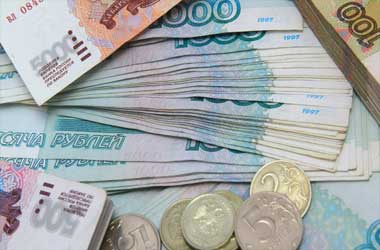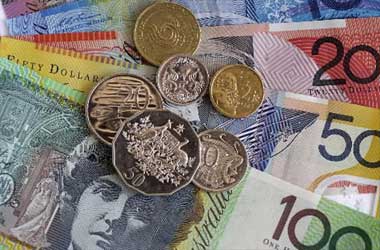 The Russian ruble lost further ground to trade at 74.60 against the greenback, against the backdrop of sluggishness in oil markets and worries over fuel demand. The benchmark Brent crude oil declined from more than a 10-month high of $56.36 per barrel recorded on Friday, due to a rise in Covid-19 infections in China, the second largest economy and also the second-largest oil consumer.
The Russian ruble lost further ground to trade at 74.60 against the greenback, against the backdrop of sluggishness in oil markets and worries over fuel demand. The benchmark Brent crude oil declined from more than a 10-month high of $56.36 per barrel recorded on Friday, due to a rise in Covid-19 infections in China, the second largest economy and also the second-largest oil consumer.
Stringent prohibitions to contain the virus in some European countries also led to a drop in the price of crude oil. Ruble has been facing considerable selling pressure on concerns over fresh Western sanctions after the intelligence agencies in the US blamed Russia of backing a series of hacking incidents in December that led to access of multiple federal agencies.
The IHS Markit reported that the country’s services PMI (purchasing managers’ index) inched a notch downwards to 48.0 in December, from 48.20 in the prior month. A reading below 50 indicates contraction and vice-versa. The latest reading indicates the third successive monthly contraction in a row. Fresh business contracted for the third consecutive month on gloomy consumer demand and a decline in purchasing strength among customers. In the meantime, fres orders from overseas continued to decline, with fresh export orders slowing down from November level. Therefore, capacity utilization remained weak, and order backlogs remained depleted in December, although at a slower rate for three months. On the price front, input cost inflation expedited to the second quickest level since March, due to an increase in prices from the supplier and disadvantageous exchange rates. In the meantime, output costs rose in a solid manner and attained the quickest level since April 2019. Overall, business morale bettered to a four-month high, due to expectations of an end to pandemic.
The IHS Markit also stated that Russia’s manufacturing PMI rose to 49.7 in December, from 46.30 in November, highlighting the fourth consecutive month of contraction, but the smallest in the current series, primarily due to slower declines in fresh orders and production. Output contracted at the slowest rate in three months. In the meantime, there was only slight decline in fresh orders as fresh export orders increased for the third month in a row. During the same period, the pace of job loss also slowed down to the lowest level since August, as output anticipations strengthened against the back drop of expectations of an increase in clients demand in the forthcoming year. With respect to price, input cost inflation sped to the quickest level in roughly six years, while ouptu charge inflation expedited to the fastest since March 2015. Eventually, business sentiment bettered to the best level since August, against the backdrop of expectation of rebound in demand as the year progresses.
The yearly inflation rate in Russia increased to 4.9% in December, from 4.40% in the earlier month, as per initial assessment indicated. It was the biggest inflation rate since May 2020 and stood well above the central bank’s 4% objective. Price of food products increased 6.7% in December, following a rise of 5.8% in the earlier month. Non-food products recorded 4.8% increase, compared with 4.5% in the prior month. Services recorded a growth of 2.7% in December, following a 2.5% increase. On m-o-m basis, consumer prices increased 0.8%, following a 0.7% rise in November.
Russia’s GDP shrank 3.7% y-o-y in November, following a downwardly amended 4.5% decline in the earlier month. The economy shrank 3.5% in the first eleven months of 2020.
With no hints of economic recovery, the ruble is expected to slide further in the weeks ahead.




